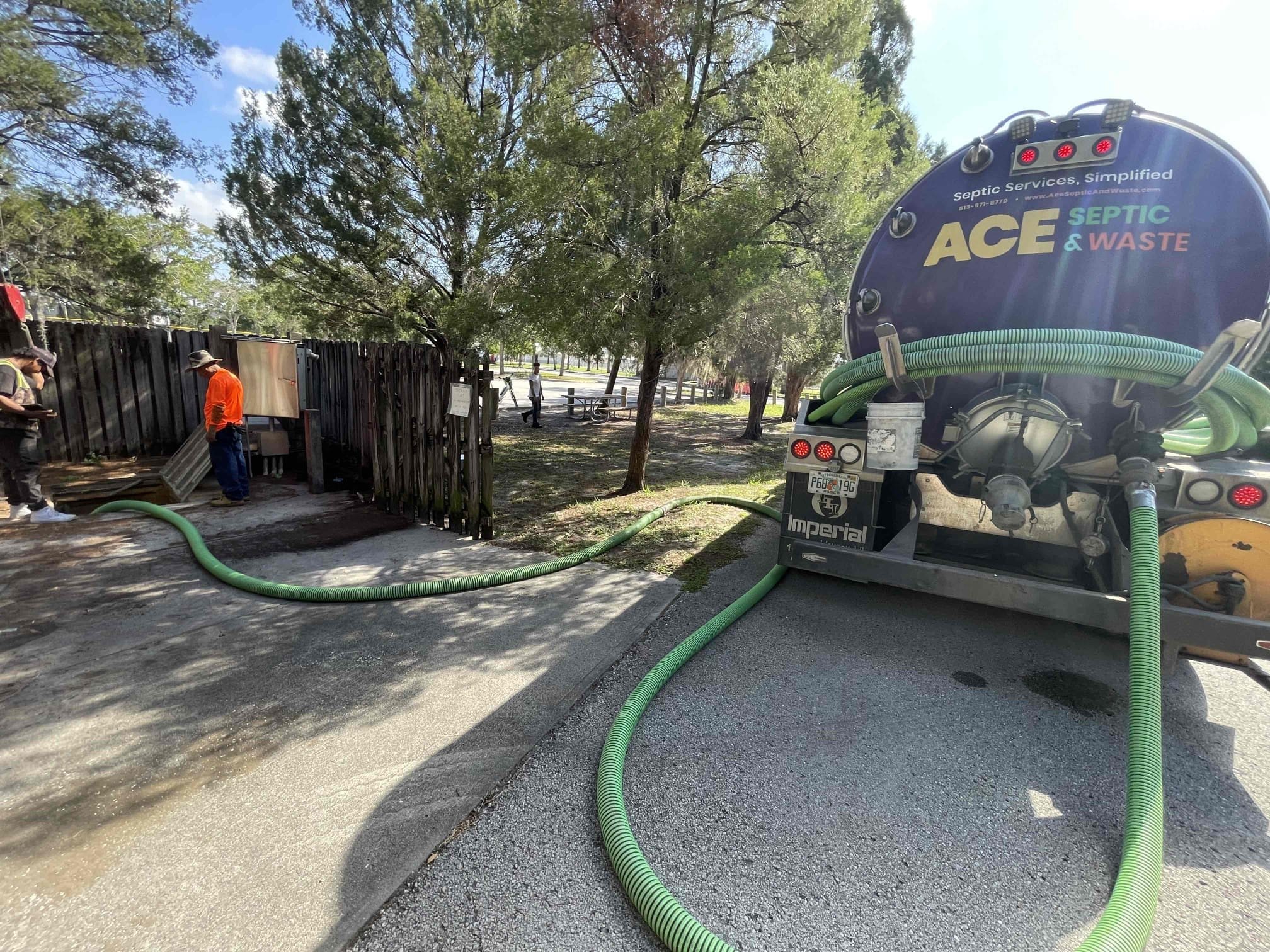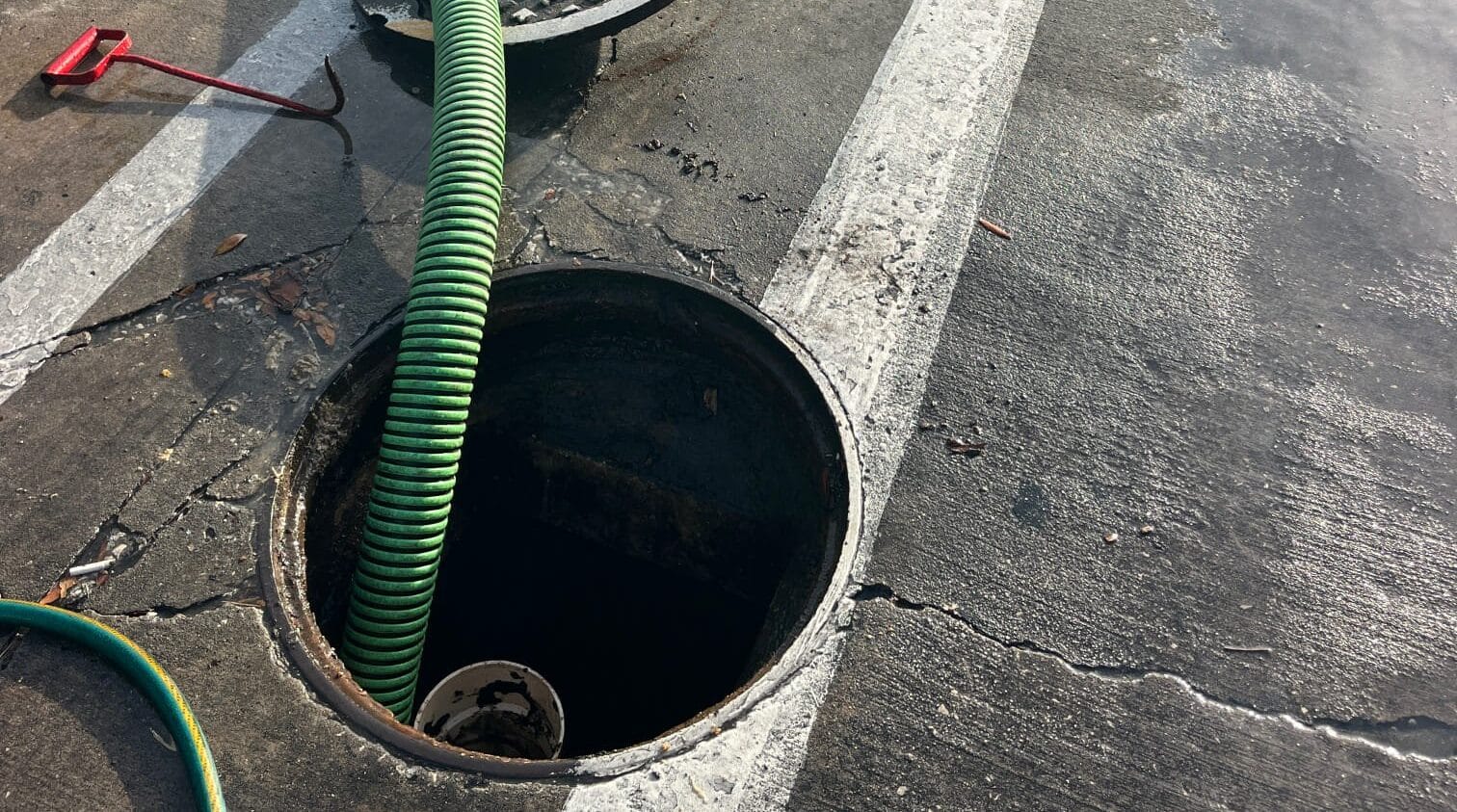As Florida continues to grow, so does the strain on its aging infrastructure, particularly when it comes to wastewater management. In areas like Tampa Bay, where many homes and commercial properties still rely on septic systems, outdated equipment poses risks to individual property owners and the region’s water quality and public health.
Florida HB 645, introduced in the 2025 legislative session, aims to streamline how property owners replace failing or outdated septic systems. If passed, the bill could significantly impact how septic system upgrades in Tampa and other communities without municipal sewer systems across the state are handled, offering faster solutions while raising questions about oversight and long-term effectiveness.
What Is HB 645?
HB 645 Florida 2025 establishes a general permit process for certain septic system replacements. Specifically, the bill would allow eligible property owners to bypass the traditional individual permitting process and instead use a pre-approved pathway to install advanced distributed wastewater treatment systems (DWTUs).
These DWTUs include modern technologies like:
- Aerobic Treatment Units (ATUs)
- In-Ground Nitrogen-Reducing Biofilters (INRBs)
- Other state-approved decentralized systems are designed to treat wastewater more effectively than traditional septic tanks
By creating a general permit structure, the bill aims to:
- Reduce delays in the permitting process
- Lower costs for property owners
- Encourage upgrades from aging or underperforming systems to more advanced, environmentally friendly alternatives
If passed, the new rules would take effect on July 1, 2025.
How Will This Affect Tampa Bay Residents and Business Owners?
HB 645 could significantly simplify the upgrade process for both residential and commercial properties in Tampa that currently use conventional septic systems. Here’s how:
Faster Approvals
Rather than waiting weeks (or months) for an individual site review, qualifying property owners could proceed under the general permit, meaning quicker turnarounds for system replacements and construction timelines.
Reduced Upfront Costs
The general permit system is expected to reduce the consulting, engineering, and administrative expenses associated with complex reviews.
Improved Environmental Outcomes
If properly implemented, this bill could lead to broader adoption of advanced wastewater treatment units, which are better at removing nutrients (especially nitrogen) before they reach groundwater or nearby water bodies like Tampa Bay. Nutrient runoff from aging septic systems is a common culprit of algae blooms and other water quality issues. Streamlining the permitting process could be a welcome change for communities in low-lying or flood-prone areas around Tampa.
Some Site-Specific Risks Remain
However, the bill’s streamlined approach could limit individualized site assessments. In areas with challenging soil conditions, high water tables, or dense urban development, there’s a concern that general permits might not catch every risk factor, especially if oversight is too relaxed.
Advantages and Considerations for HB 645
Florida House Bill 645 opens the door to faster septic permitting and broader use of Decentralized Wastewater Treatment Units (DWTUs) under a general permit framework. While the streamlined process can make upgrades more accessible, success depends on quality implementation.
Advantages:
- The simplified permitting process makes it easier for property owners to replace or upgrade aging systems without navigating complex regulatory hurdles.
- Faster approvals support time-sensitive projects like home sales or renovations.
- Encourages proactive adoption of DWTUs, helping reduce long-term system failures and environmental damage across Florida.
- Offers flexibility for contractors and homeowners looking to modernize aging infrastructure.
Considerations:
- A general permit model may not address site-specific risks, such as high groundwater in coastal areas like South Tampa.
- Without proper oversight, there’s a risk of underperforming or misapplied systems.
- Long-term maintenance and performance concerns could arise if installations aren’t managed properly.
ACE Septic & Waste is actively working to minimize these risks through in-house inspections, planning, and execution. Our licensed team handles every stage, from system design and permitting to installation and maintenance, ensuring full compliance and performance. Unlike companies that outsource inspections or rely solely on third parties, our customers get direct, accountable service with no corners cut. HB 645 may simplify permitting, but quality still matters, especially in sensitive regions. ACE is here to make sure every system we touch meets the highest standard.
How Florida’s HB 645 Compares to Virginia’s HB 2671
At the same time, Florida proposes to streamline permitting, while Virginia is moving in the opposite direction. Virginia’s HB 2671, set to take effect in July 2025, adds new layers of accountability:
- Only licensed professionals may conduct septic inspections during real estate transactions.
- Inspections must follow standardized guidelines.
- Pass/fail assessments and hydraulic load testing are prohibited.
This contrast highlights a larger national conversation on water safety and septic systems: Should we prioritize speed or safety when it comes to wastewater infrastructure?
Florida’s HB 645 offers faster access to upgrades, but Virginia’s stricter rules emphasize professional oversight and long-term reliability. Both aim to modernize aging systems, but each takes a different path.
For Tampa Bay residents, the comparison is important. As our region balances growth, water protection, and rising development pressure, it’s critical to ensure that faster permitting doesn’t mean cutting corners.
Comparing Florida and Virginia’s Approaches to Septic Oversight
While Florida works to streamline septic permitting with HB 645, Virginia focuses on standardization through HB 2671. Set to take effect in July 2025, Virginia’s new legislation introduces clear procedures intended to improve inspection quality and consistency across the state.
Key measures include the following:
- Only licensed professionals may conduct septic inspections during real estate transactions.
- Inspections must follow standardized statewide guidelines.
- Pass or fail grading and hydraulic load testing are prohibited to avoid inconsistent evaluation methods.
Both approaches reflect key strategies designed to manage risk and improve long-term septic performance for the needs of their residents. Florida’s path emphasizes accessibility and speed, while Virginia’s emphasizes structure and consistency.
At ACE Septic & Waste, we align with the best elements of both systems. Our in-house team uses standardized procedures based on Florida’s DEP and industry-wide best practices, ensuring thorough and defensible inspections. Every inspection we perform includes detailed assessments, documentation, and transparent communication. Whether the law mandates it or not, ACE believes that consistent septic oversight, clear records, and professional evaluations are the foundation of responsible wastewater management.
What Should Tampa Property Owners Do Now?
Whether you’re a homeowner with an older septic system or a commercial developer evaluating future capacity needs, here’s what you can do today:
- Stay Informed
HB 645 is still under legislative review. Final implementation details may change before July 2025.
- Explore Advanced Treatment Options
Systems like INRBs and ATUs are already permitted in many areas. Now may be the time to upgrade—especially if your current system is over 20 years old or showing signs of failure.
- Consult with Licensed Experts
Even if general permits become available, working with a qualified wastewater contractor ensures your system is sized and installed correctly for your site’s conditions.
- Watch for Local Policy Changes
Local governments in Tampa Bay may issue additional guidelines in response to HB 645. Stay connected with your county environmental health department or planning board.
Stay Current with Wastewater News with ACE Septic & Waste
Florida HB 645 reflects a growing awareness that traditional septic systems aren’t always enough, especially in urbanizing, flood-prone regions like Tampa. The bill’s proposed general permit for septic replacement in Florida could make it easier for homeowners and business owners to adopt better-performing wastewater systems.
Still, faster isn’t always better. As distributed wastewater treatment systems become more common, thoughtful planning and qualified oversight from quality septic providers like ACE Septic & Waste will be key to ensuring that these changes benefit public health and the environment.
If you’re unsure whether your property qualifies or if you want to get ahead of these changes, ACE Septic & Waste is here to help. We serve residential, commercial, and municipal clients across the region with licensed expertise, permitting support, and modern septic solutions built to last.
Call 813-971-8770 or request a system assessment to get started.




